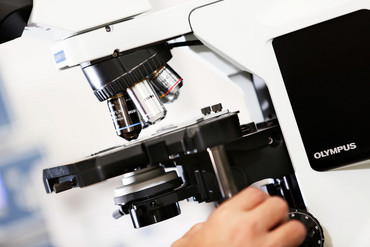The role of the stromal and inflammatory microenvironment in pancreatic cancer
Research goal

Pancreatic cancer development und progression are significantly controlled by the composition and activity of the tumor cell surrounding microenvironment. In some pancreatic cancer specimen fibroblasts, immune cells and collagen represent up to 90% of the tumor volume. The role of tumor stroma in pancreatic carcinogenesis and progression is discussed controversially. On one hand the dense tumor stroma functions as a barrier for tumor cell spreading; on the other hand it significantly impacts on the wash-in and the metabolism of chemotherapeutic agents.
Additionally, immune cell infiltration plays a pivotal role in pancreatic cancer. The composition of immune cells in the pancreatic cancer microenvironment influences tumor growth and controls central signaling pathways in the pancreatic cancer cell. Inversely, the tumor cell modulates the composition of the inflammatory environment via cytokine secretion.
The characterization of cellular and non-cellular components of the tumor stroma during pancreatic cancer development and progression and in the context of chemoresistance constitutes an important research field in our department.
Using translational experimental approaches we aim on modulating specific components of the tumor stroma in order to improve the therapeutic response of pancreatic cancer cells. Moreover, our studies focus on the bidirectional communication between tumor and immune cells in the pancreas and evaluate modulation of this communication as a novel therapeutic strategy in pancreatic cancer treatment.
More information